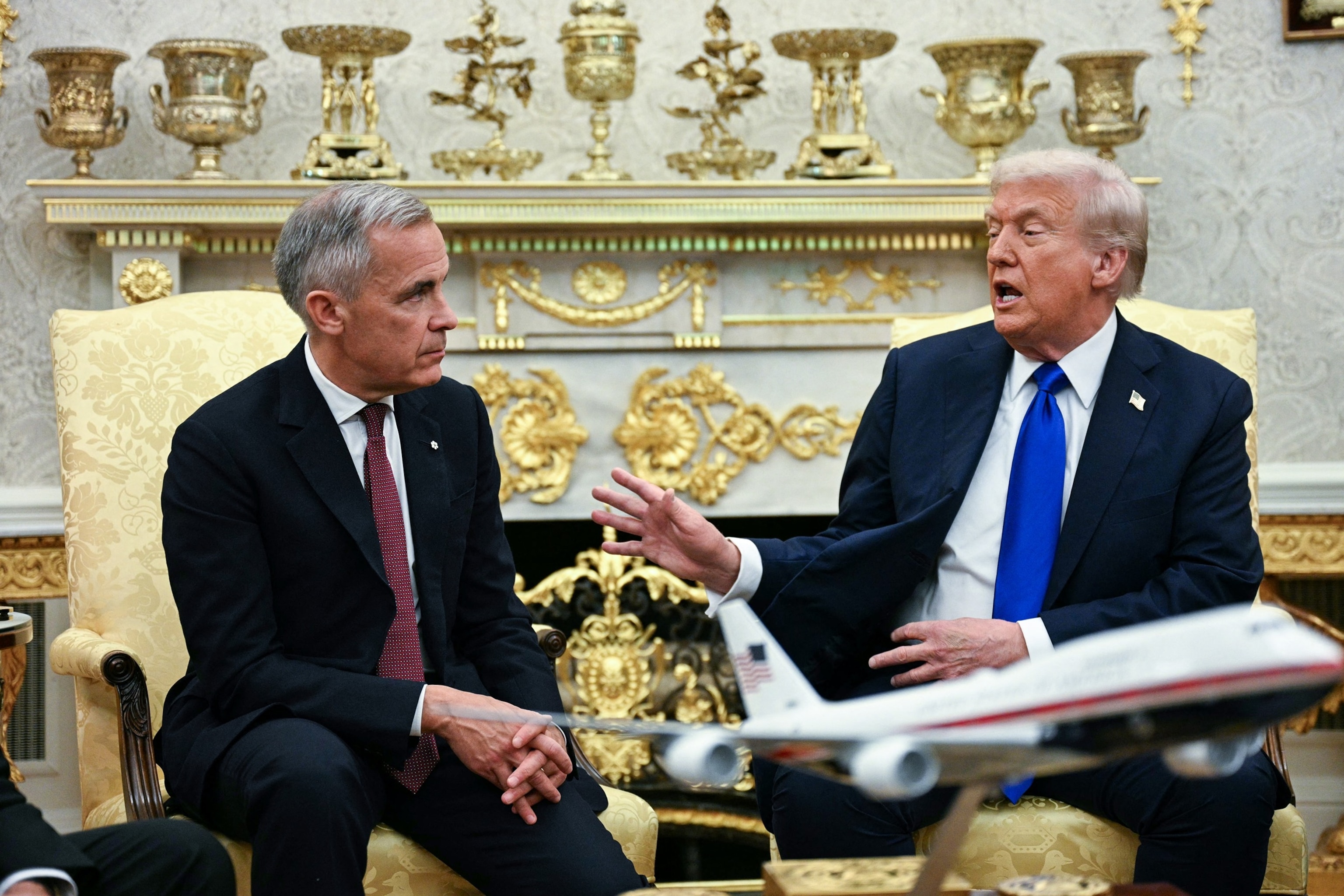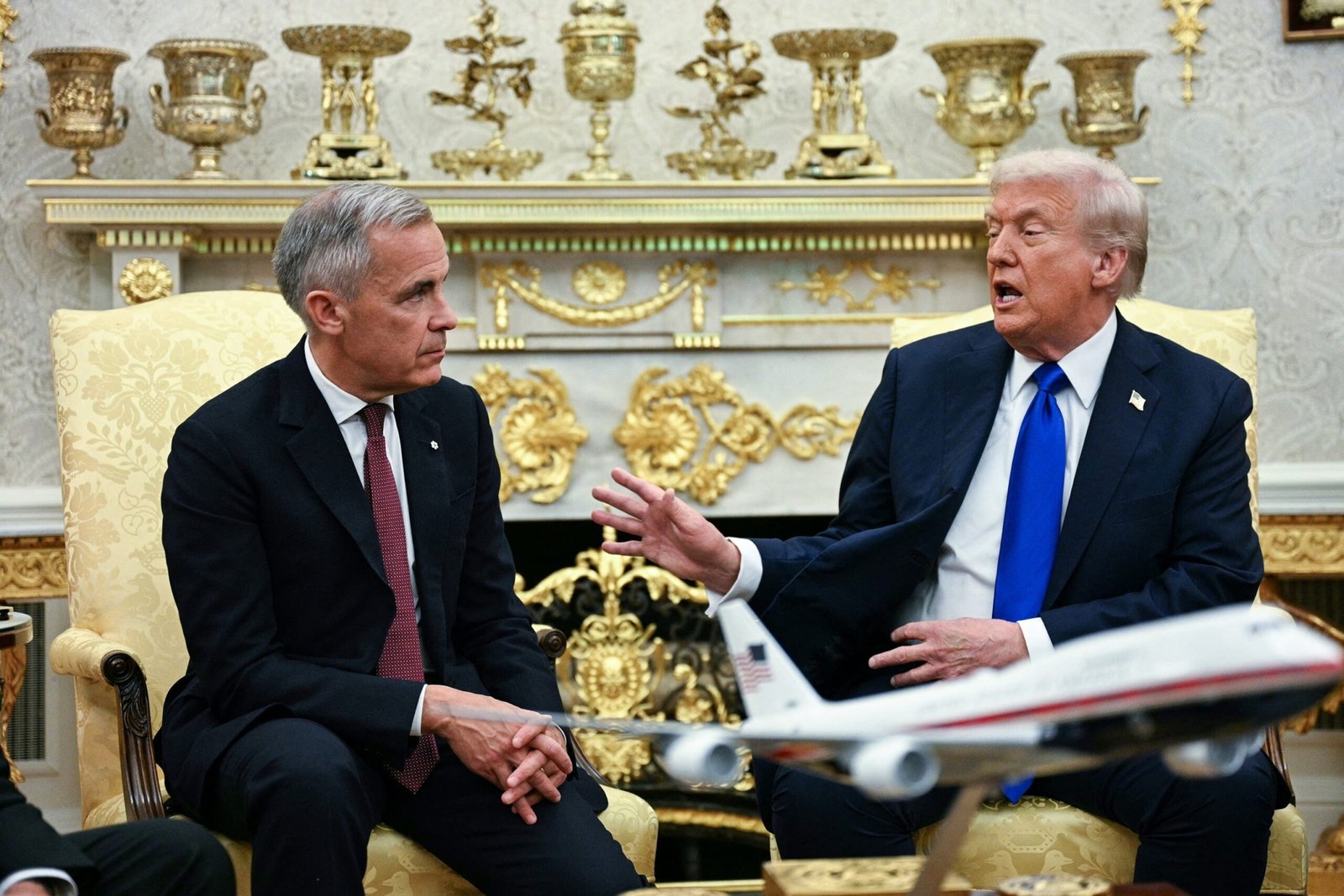Prices of appliances, cars and auto parts could be affected by President Donald Trump’s overnight decision to end trade talks between the United States and Canada, some trade experts told ABC News.
Trump said he will end trade negotiations with Canada in response to a negative television ad about tariffs released earlier this month by the Canadian province of Ontario.
“TARIFFS ARE VERY IMPORTANT TO US NATIONAL SECURITY AND ECONOMY. Based on their egregious behavior, ALL TRADE NEGOTIATIONS WITH CANADA ARE HEREBY TERMINATED,” Trump posted on his social media platform.
The ad features audio excerpts from a 1987 speech by then-President Ronald Reagan, which came when he imposed some tariffs on Japanese goods but warned of the long-term economic risks of high tariffs and the threat of a trade war.
Trump claimed, without evidence, that the ad was intended to influence the outcome of a U.S. Supreme Court case on the tariffs, which will go before the justices next month. In a post on X, Ontario Premier Doug Ford urged cooperation between the two countries.
“Canada and the United States are friends, neighbors and allies. President Ronald Reagan knew that we are stronger together. God bless Canada and God bless the United States,” Ford said.
Canadian products currently face steep tariffs of 35%, although many of those exports to the United States remain duty-free because the policy excludes products that comply with the United States-Mexico-Canada Agreement, or USMCA, a free trade agreement.
A separate swath of Canadian products is subject to specific sector tariffs, such as 50% levies on steel and aluminum.
In trade negotiations, Canada attempted to reduce or lift tariffs on steel and aluminum, but a break in discussions could keep them in place for an extended period, experts said. Canada is the main exporter of steel and aluminum to the US.
Steel and aluminum are found in a large number of products, including appliances, food packaging, automobiles and auto parts, some experts added.
“Trade negotiations could have resulted in the reduction of existing tariffs,” Michael Sposi, an economics professor at Southern Methodist University, told ABC News.
Steel is the heaviest material in a car and represents around 60% of its weight, according to the American Iron and Steel Institute.

Donald Trump meets with Canadian Prime Minister Mark Carney in the Oval Office of the White House in Washington, DC on October 7, 2025.
Jim Watson/AFP via Getty Images
When steel imports face strict taxes, the price of steel paid by U.S. manufacturers rises, which means higher input costs for automakers, experts previously told ABC News. They added that those companies are likely to raise prices for consumers as a way to offset some of those costs.
Major appliances, such as refrigerators, dishwashers and washing machines, rely in part on steel, making them vulnerable to high prices due to tariffs.
In June, Trump suspended talks on Canada’s plans for a digital services tax, which would have imposed a 3% levy on American technology companies. Talks resumed days later, after Canada abandoned its plans for the tax.
Last year, the United States had a trade deficit with Canada of $63 billion, marking a slight decrease from the previous year, according to the Office of the U.S. Trade Representative. By comparison, the United States had a larger trade deficit last year with its other major trading partners: a $295 billion deficit with China and a $171 billion deficit with Mexico.
The United States constitutes the destination for approximately three-quarters of Canadian exports, while such products represent about 11% of US imports.
The list of top Canadian exports to the United States also includes crude oil, natural gas and motor vehicles, although many of those products remain tariff-free due to their compliance with the USMCA.
The USMCA will undergo a joint review next year, giving countries the opportunity to modify the agreement. If Trump’s renewed frustrations affect the outcome of those negotiations, they could affect the price of some additional imported products, such as automobiles, Tyler Schipper, an economics professor at the University of St. Thomas, told ABC News.
“The breakdown of these talks on current tariffs probably does not bode well for those negotiations,” Schipper said.





